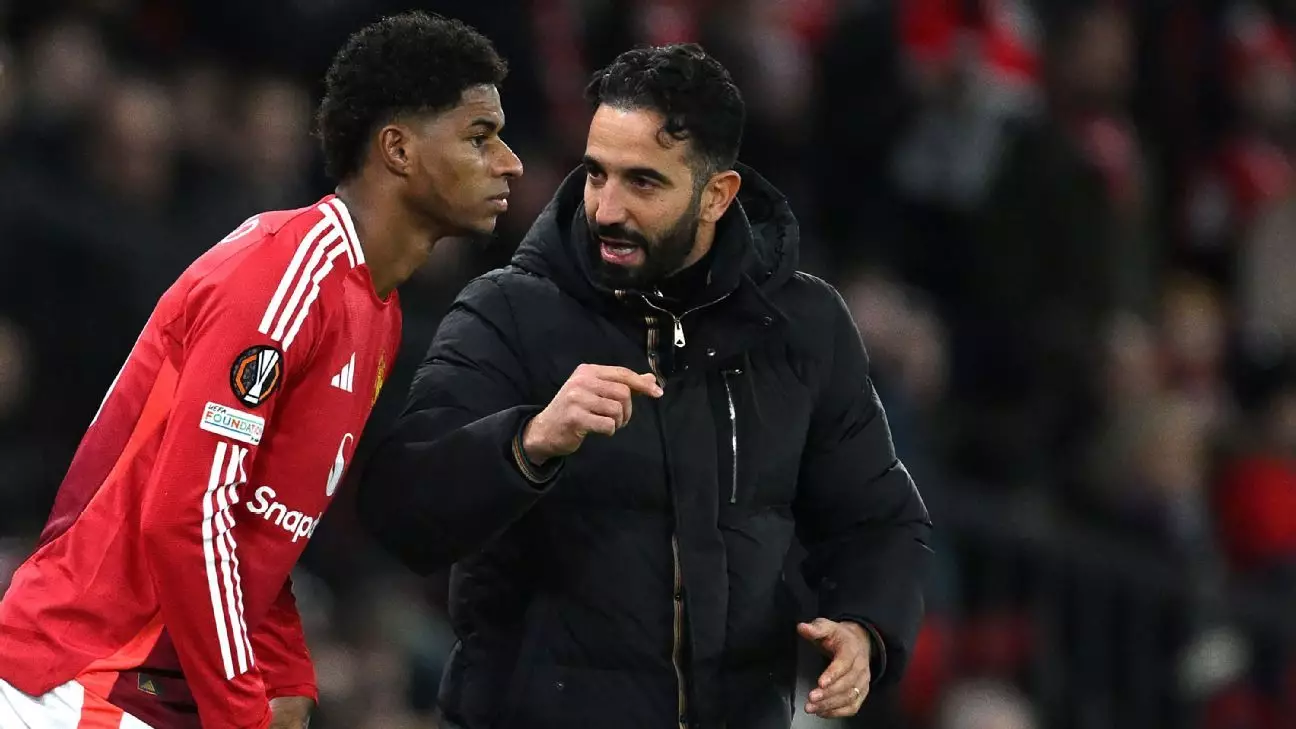As Manchester United continues to grapple with a disheartening string of defeats, Ruben Amorim’s recent comments underscore the challenges he faces as the team’s head coach. Following a fourth consecutive loss – this time against Newcastle at Old Trafford – the club finds itself mired in a precarious position, sitting in 14th place, perilously close to the relegation zone. What’s striking is Amorim’s forthrightness about his squad’s needs during the impending January transfer window. Instead of signaling a potential influx of new talent, he has made it clear that reinforcements are unlikely. The critical question remains: how can a team in need of urgent revival forgo the opportunity to reshape its roster when the window opens?
One of the most substantial hurdles facing the Portuguese coach is the fit of his existing players within the 3-4-3 system he is committed to. With a roster seemingly lacking in profiles that suit this tactical formation, the need for adaptability arises. Yet, Amorim is resolute in maintaining his philosophy. He explained, “I have to sell my idea.” This steadfastness raises an important debate: in times of adversity, should a coach adhere strictly to their principles or bend to accommodate the available talent? While Amorim’s loyalty to the system serves a purpose, it also risks alienating players who are struggling to adapt.
In contrast to this theory, critics question whether rigid adherence to a specific system can lead to further disarray. Amorim’s dismissal of the previously favored 4-3-3 formation, associated with former manager Erik ten Hag, suggests a strong conviction that shifting tactics may lead to even greater chaos. However, the inability to pivot in strategy raises concerns regarding his adaptability as a coach.
As the January window approaches, a significant layer of complexity is added by the club’s financial constraints. According to sources, any moves in the market will hinge largely on offloading current players, thereby creating space for potential newcomers. Specifically, Amorim has indicated a keen interest in acquiring a left wing-back, highlighting a clear gap in the squad that could be addressed. It’s increasingly evident that for Manchester United to secure its future in the Premier League, strategic transfer decisions must be made to replenish the ranks and invigorate team morale.
Looking ahead, Amorim’s immediate focus is on the daunting task of facing league leaders Liverpool. The match not only represents a test of tactical fortitude but also serves as a vital opportunity for United to reclaim their lost confidence. Success in such a high-stakes environment could be a turning point for both Amorim and the squad. Yet, considering the current trajectory of the season, the question remains: can a cohesive identity within a struggling team be maintained amid turbulent changes? Only time will tell if Amorim’s commitment to his system will ultimately bear fruit or if the pressing calls for change will go unanswered.

